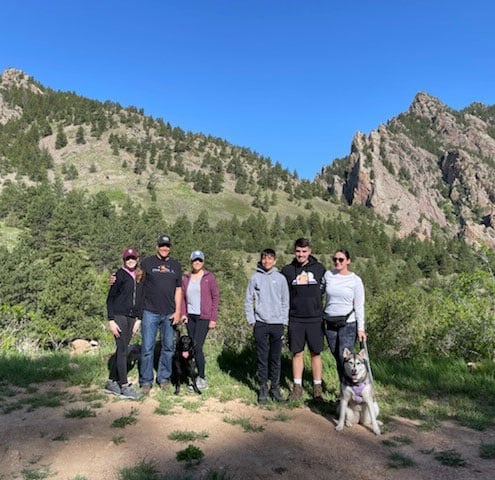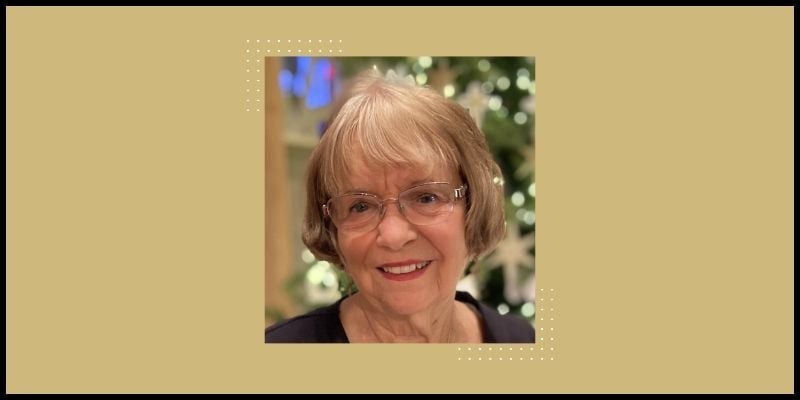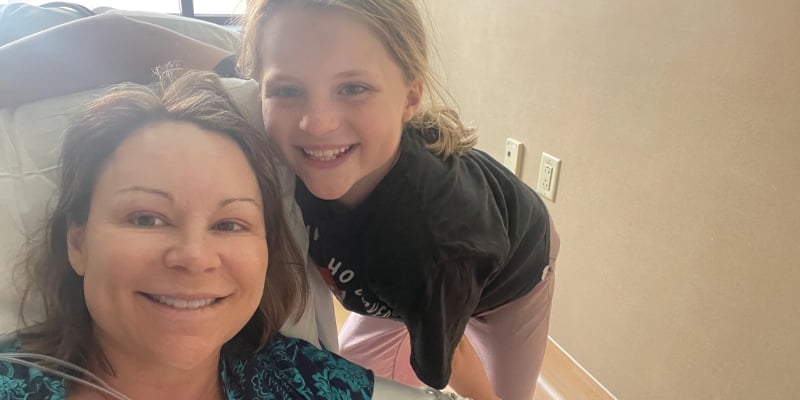Growing up in a Spanish-speaking family, Gladiz Martinez, AG-CNS ’20, BSN ’08, often served as a reluctant family interpreter.
“In the outside world, we had to speak English,” she says. “Later, there were a lot of fights – with me being a rebellious teenager and not wanting to be the interpreter anymore.”
Today, Martinez uses her first language to work as a Clinical Nurse Specialist (CNS) with the Transplant Center at UCHealth University of Colorado Hospital (UCH) on the Anschutz Medical Campus in the Hispanic Clinic Program. As a CNS, Martinez has multiple responsibilities. Her coordinator role is to help Spanish-speaking patients – many of whom have been on dialysis for as long as 10 years while waiting for a transplant.
Martinez’s outreach role is to go out in the community and educate dialysis units, nephrology practices, and community providers about the Hispanic Clinic program. She also collaborates and communicates with other organizations, such as Denver Health, to improve workflows and simplify patient referral options.
Paying it forward for her community
As a first-generation Colorado native with an immigrant family from Mexico, Martinez observed and experienced firsthand the effect of the social determinants of health on her community.
“Growing up, the emergency room was our primary care office as we had no health insurance,” she says. “I grew up with the same health disparities and socio-economic issues that most of our transplant patients face daily. That is the driving force that fuels my passion for growing the Hispanic Clinic program.”
According to U.S. Census data, Hispanic people comprise the largest ethnic minority group in Colorado, at 21.8% of the population. They represent 25.84% of kidney transplant recipients through the UCHealth Transplant Center (compared to 18.89% nationally). The Hispanic/Latinx population is 1.3 times more likely to experience kidney failure compared to white Americans.
Hispanic ethnicity is associated with a greater prevalence of cardiovascular disease risk factors – including obesity and diabetes. Research shows that one out of two Latinos in underserved communities will be diagnosed with diabetes. Unfortunately, often these patients are unaware of diabetes or its consequences and develop chronic kidney disease, which can be life-threatening and sometimes require a kidney transplant.
In her role, Martinez helps patients navigate the complex healthcare system from the transplant-evaluation phase to preparing them to receive a transplant. She’s worked with colleagues to develop resources such as discharge manuals, a Spanish-language hotline, wayfinding to the transplant center, educational videos, and more.
Martinez also conducts community outreach, working with nonprofit organizations, federally qualified health centers, dialysis centers, and other health care systems to spread the word about the UCHealth Transplant Center. In addition, she coordinates and facilitates family nights every two months at the UCH campus, where people can learn about transplants and organ donation.
"My past life experience and academic expertise have provided the tools to go out in the community and find solutions with a more powerful lens.”
– CU Alumna Gladiz Martinez, AG-CNS ’20, BSN ’08
Applying tools from MS program
An alumna from the University of Colorado College of Nursing, who earned a Bachelor of Science in Nursing (BSN) degree in 2008, Martinez enrolled in CU College of Nursing’s Master of Science degree program specializing in Adult-Gerontology Clinical Nurse Specialist (AG-CNS). She graduated from the program in 2020, and earned her CNS credential.
“My past life experience and academic expertise have provided the tools to go out in the community and find solutions with a more powerful lens,” she says. “Can you imagine being a patient who needs a transplant without knowing the healthcare system's language or complexity?”
Martinez started with the UCHealth system (UCH) in 2001 as a medical assistant at a family medicine clinic. Over the next 20 years, and with exceptional nursing mentors, she would find her true calling.
She says curiosity and compassion inspired her to delve even deeper into nursing education.
“I wanted to know how to make people feel better,” she says. “Then I realized that nurses can positively impact patient care and outcomes. That’s why I felt nursing was the perfect fit for me.”
In her undergraduate nursing school application, Martinez wrote an essay focused on helping underserved people in the Hispanic community. It emphasized limited trust, language barriers and lack of understanding that reinforced barriers to receiving care.
“That’s the essay that got me into nursing school – it’s been a 360-degree circle,” Martinez said, reflecting on her current role with the transplant program she joined in 2021. “Transplant leaders provided me my dream job and I am so thankful.”
After earning her BSN, Martinez worked at the General Surgery Unit of UCH, then in multiple roles with perioperative services. Still, she yearned to advance her education to expand her knowledge and career opportunities.
“I knew that I wanted a master’s degree, but I didn’t know what route I wanted to take,” she says.
After talking to CU Nursing Professor Mary Beth Flynn Makic, PhD ‘07, CNS, specialty director for the Adult-Gerontology Clinical Nurse Specialist (AG-CNS) program, she was sold on becoming a CNS.
Makic taught Martinez in undergraduate classes, mentored her during her first round at CU Nursing, and as a new graduate nurse.
According to the National Association of Clinical Nurse Specialists, the nursing profession created the CNS role to meet the increasingly complex needs of patients. CNSs provide expert care to patients with complex conditions and advance the practice of nursing by: Designing innovative, evidence-based interventions; influencing the practice of other nurses; and influencing the healthcare system environment to support autonomous nursing practices.
Why Martinez chose CU Nursing
For Martinez, CU Nursing was an easy choice because of familiarity and convenience.
“I've known many of the professors since my undergrad," she says. "I've also worked with them since I'm right next door at UCHealth. The accessibility and the connections I have with the professors were among the reasons I returned."
In particular, Makic’s knowledge, wisdom, and support was a major selling point for Martinez’s enrollment in the AG-CNS specialty.
“She’s always very supportive,” Martinez says. “I didn’t have strong parental guidance with higher education – as my parents valued hard work over higher education. So, I relied on mentors to help guide me with the education system, and Dr. Makic was one of them. She was always flexible and present. She is a wealth of knowledge and knows the system very well.”
Makic walked Martinez through multiple evidence-based practice projects. With Makic’s guidance, Martinez educated nurses on overcoming language barriers by using existing resources.
“There were already systems in place, but there was a lack of awareness,” she says. “[Dr. Makic] mentored me through the process because I did not have answers to the following questions such as: ‘What does the evidence say? What is the best practice? Are we doing the right thing?’”
Looking ahead

Gladiz Martinez and family on a recent hike. |
Even though 80% of CNS graduates pursue a doctorate, Martinez says she is content with her job and life for the time being and has no plans of returning to school soon, but it’s “always a possibility in the future.”
"I am a mom of three kids I love with all of my heart," she says. "I also have a four-legged child and a lovely husband. I am learning to cherish my time when not changing the world. We are a close family. Our weekends are full of tournaments, sports, and normal parental busyness."
Martinez continues to build on her experience and plans to begin practicing independently as an advanced practice provider (APP) with the CU School of Medicine, managing post-operative transplant care and her other responsibilities.
“I am truly blessed to have the support of a beautiful family, friends, mentors, colleagues, and leaders both at CU Nursing and the UCHealth system,” she says. “I would not be able to do what I do without all the people who trust and believe in me. For that, I am humbled and grateful.”


